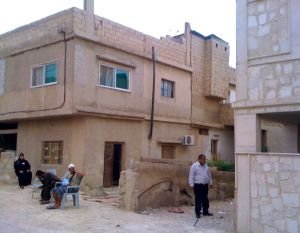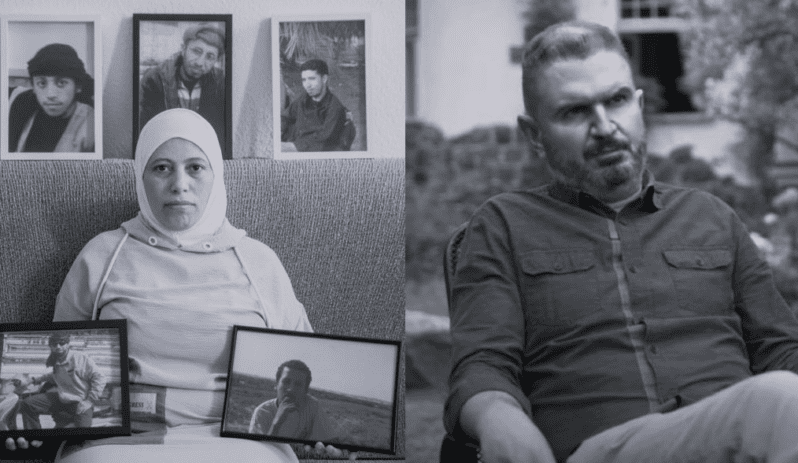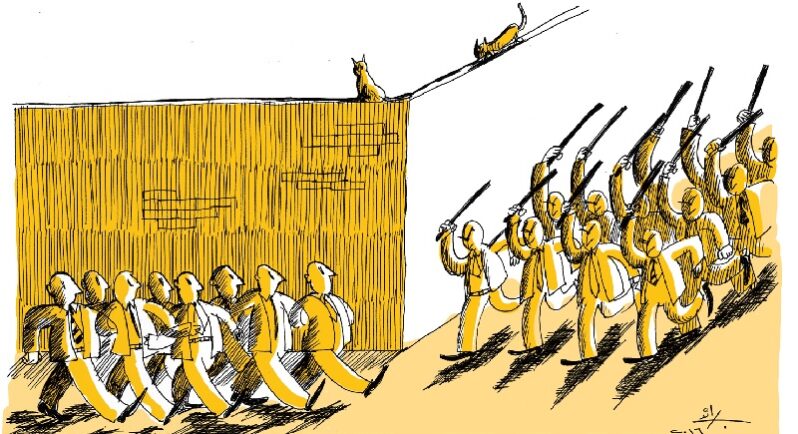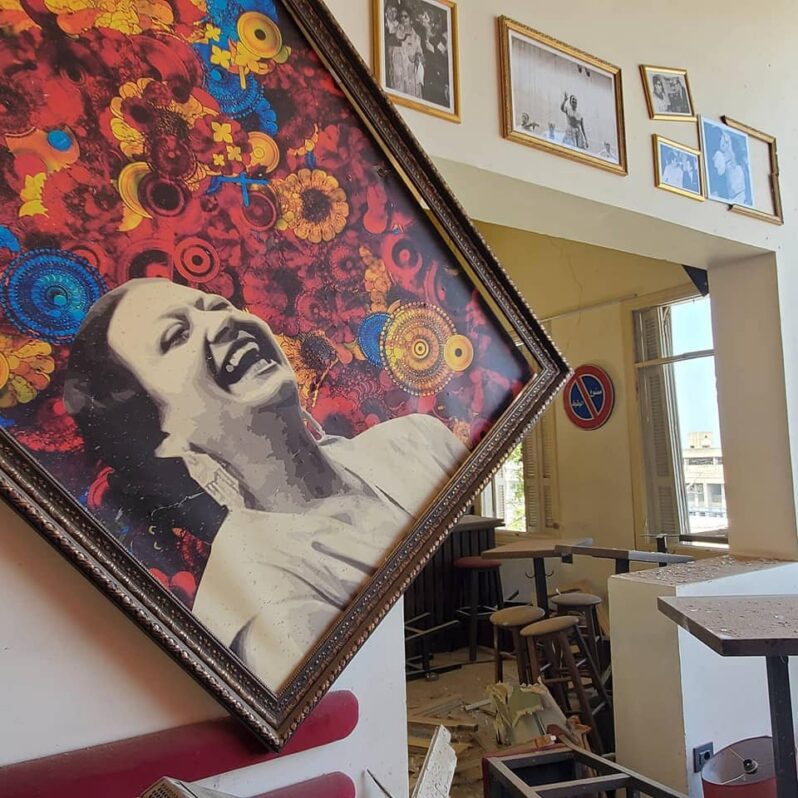Jalwa in Jordan: Customary Law and Legal Reform

Al-Hayat Center for Civil Society Development (HCCSD) issued on June 17, 2013 a declaration about Jalwa, showing the seriousness of this phenomenon and its impact on Jordanian society. Jalwa is a form of forced evacuation linked to tribal conflict. It takes place when two tribes live in the same governorate or area and a member of one tribe commits a murder or an act of rape against a member of the other. Under Jalwa, the offender’s relatives, including the ancestors of the fifth grandfather in some cases, are forced to leave the governorate or the geographic area in which they live until reconciliation is reached between the two tribes.
According to figures provided by the Ministry of Interior, Jordan witnessed 16 incidents of Jalwa in 2011, including a case that involved the evacuation of more than 100 families from al-Hashimiya District in al-Zarqa following a case of murder. In contrast, there are several cases in which the victim’s family forgive the offender’s family and do not demand Jalwa.
Jalwa is seen as an attempt to avoid acts of vengeance and instantaneous reprisals referred to in Jordan as “bouts of anger” (fawrat al-damm). Jalwa may extend for years if the two tribes do not reach a reconciliation agreement. Tribal leaders usually mediate reconciliation between the two tribes, but their efforts may reach a dead-end because of the large value of the Diyya, or blood money, paid by the perpetrators' family. In the case of premeditated murder, the Diyya may sometimes reach US$100,000.
Traditionally, Jordan’s judiciary delays issuing a final decision in relation to such crimes
because if reconciliation takes place, personal rights of those involved are dropped and the prescribed punishment changes. One tribal leader complained that the slow litigation procedures generate a feeling among the victim's family that the perpetrator remains free and that the law did not do them justice. As a result, tribal communities continue to cling on to the Jalwa practice.
First strong statement against Jalwa
The declaration issued by HCCSD was the first of its kind. In the declaration, the center emphasized the executive authority’s legal commitment to respect, protect, and fulfill the rights of citizens. The center also decried all acts of vengeance, including reprisals and the destruction of public and private property. It called for strengthening the system of social values to renounce all forms of violence by consolidating social peace and adopting relevant plans and programs. Moreover, the center expressed its concern over enforcing Jalwa in some cases by administrative governors under the Crime Prevention Law No. 7, 1954. The HCCSD asked the interior minister to instruct the administrative governors to stop the imposition of Jalwa in its current form against the offender's family in order to maintain the rule of law and show respect for the provisions of Article 7/2 of the Constitution. Article 7/2 of the Constitution stipulates that “any act of infringement on the rights and public freedoms or on the privacy of Jordanians shall be deemed a crime punishable by law”.
The center also stressed that the state should take responsibility for any administrative decisions and actions that violate the law, and should pay compensations for all forms of damage it causes as a result of error and gross violation of citizens' rights. Finally, the center urged official and nonofficial institutions to contribute to establishing and strengthening the rule of law in order to achieve justice and equality among citizens on the levels of thought and deed and, to reject all forms of individual or group revenge, which undermines the prestige of the state and its institutions and infringes on the citizens’ rights and freedoms.
HCCSD officials became cognizant of the dangerous impact of Jalwa while monitoring the parliamentary elections. The center noticed that some citizens were unable to exercise their electoral right because they left or were forced to leave their original governorate after one of their relatives allegedly committed murder. Based on an investigation carried out by the centre, the livelihood of individuals who are subject to Jalwa is negatively affected. Having to leave their homes, work, and schools and then move to another governorate means having to bear the burden of relocation (such as rent). In addition, their constant absence from the workplace or inability to continue to cultivate the land they own adds to their woes. If the individuals concerned are university students, they may be unable to continue their studies if their university is located within the region they were forced to leave. Other problems associated with Jalwa is the violation of freedom of movement and the choice of residence, as well as the threat it might pose to family unity.
The Jalwa is thus one form of collective punishment imposed on a group of citizens, whose only fault is that they are relatives of the offender, who is already detained pending further investigation. Thus, Jalwa violates the principle of individual punishment, which may be handed down only to the offender. Furthermore, such a punishment is not decided by the judiciary.
Traditional Grounds for Jalwa: Revoked Tribal Law
The application of Jalwa is rooted in a set of laws related to tribes and Bedouins, most of which were issued in 1936 under the British Mandate. In 1976, they were all abolished under Law No. 34. However, Jalwa is still applied today. Its legitimacy remains unchallenged, except by some rare decrees issued by the Supreme Court of Justice – the Administrative Court, which considered any action based on tribal laws illegal. The Court's Decree No. 144, 1984 stated that “there is no legal basis to the saying that the governor has the power to take certain tribal measures because Law No. 34 of 1976 abolished the courts charged with tribal affairs and the supervision of the Bedouins”. Decree No. 45, 1985 stated that “Law No. 34 of 1976 abolished the tribes law, the Tribal Court of Appeal, and the law on supervision of the Bedouins. These tribal laws used to allow the enforcement of some tribal customs in disputes arising from some crimes. Hence, it is no longer permissible to rely on administrative customs to justify administrative detention. Such reliance represents a clear violation of Article 8 of the Constitution, which stipulates that 'no individual may be arrested, detained or have his freedom restricted except in accordance with the provisions of the law”.
Pursuant to the ostensibly obsolete laws governing the tribal customs, Jalwa applies to specific Bedouin tribes rather than all Jordanians. However, according to monitoring by HCCSD, this practice had been extended to include all Jordanian tribes and families residing in urban and rural areas and refugee camps. Besides, the application of Jalwa on Bedouin tribes has become unreasonable, now that these tribes have settled in cities and established permanent premises there; they are no longer viewed as nomadic.
Modern Grounds for Jalwa: A Reading into Law in View of Tradition
The Jalwa is currently enforced by the district governor pursuant to the provisions of the Crime Prevention Law No. 7, 1954. Several national human rights reports say that the law is unconstitutional because it allows detention in contravention of the sound litigation procedures under the Jordanian law and relevant international standards. Also, it has become an international issue after the United Nations and committee reports frequently discussed its possible repercussions. For example, in its concluding observations on the periodic report submitted by Jordan in 2010, the UN Human Rights Committee (HRC) expressed deep concern that this law would authorize district governors to arrest any person deemed a danger to society without a bill of indictment and without providing legal guarantees or issuing any court order in the matter.
To implement the Jalwa, the district governor visits the offender’s family to sign the so-called security Atwa. The latter is a truce period of three days and one third of a day, allowing the immediate family and relatives of the offender to leave their homes without being assaulted by the victim’s family. The Atwa agreement should be signed by the victim’s family, as well as by representatives of the Public Security Department and the Ministry of the Interior. The evacuation process takes place in the knowledge, and under the supervision of the district governor.
According to the Supreme Court's interpretation, the powers of the district governor are granted under the Crime Prevention Law and the concept of administrative discipline. These powers can restrict the activities and freedoms of individuals in order to protect public order. However, administrative discipline requires making a balance between the individuals’ rights and freedoms on the one hand, and restricting them on the other.
Jordan’s Crime Prevention Law Cannot be Used in Jalwa Cases.
The powers granted to the district governor under the provisions of the Crime Prevention Law include:
Requesting the concerned individuals to sign a pledge of good conduct during the period deemed suitable by the district governor, but not exceeding one year
Putting individuals under house arrest by placing them under the watch of the police or gendarmerie for a period not exceeding one year.
According to the Supreme Court of Justice, the powers of the district governor are discretionary. The person under house arrest may not leave the district or town or village he/she is confined to or relocate into another one without written authorization from the commander, who shall be aware of any change in the person’s address or place of residence. Moreover, he/she shall report to the nearest police station upon request and is placed under night curfew. The police may inspect his/her place of residence at any time and should he/she fail to sign a pledge to uphold these restrictions, he/she is subject to administrative detention.
In light of these powers, the district governor’s decision to enforce Jalwa lacks any legal basis, as the individuals or cases to which the Jalwa law applies are unconnected to Jalwa. Therefore, it is likely that such laws can be revoked by the Supreme Court of Justice. The offender’s family may also demand compensation for the damages they suffered as a result of these decisions. According to Article 9/B of the Law of the Supreme Court of Justice, the court shall look into claims of compensation for the damages related to decisions and procedures set forth in the said article, whether the claims are directly filed or referred to the court. This means that the law addressing the compensation case sets forth a special text to distinguish it from the cancellation case. The objectives of a cancellation case is to revoke an administrative decision due to the lack of legitimacy, while the compensation case is filed against the public administration to pay compensation due to material and moral damage suffered by the individual in question as a result of illegitimate decisions.
It is worth noting that the majority of Jordanians do not generally question the legitimacy of Jalwa; they even believe it has an important role to play. However, there are calls for minimizing the effects of Jalwa rather than abolishing it by restricting its application to first-degree or second-degree relatives.
This article is an edited translation from Arabic.



